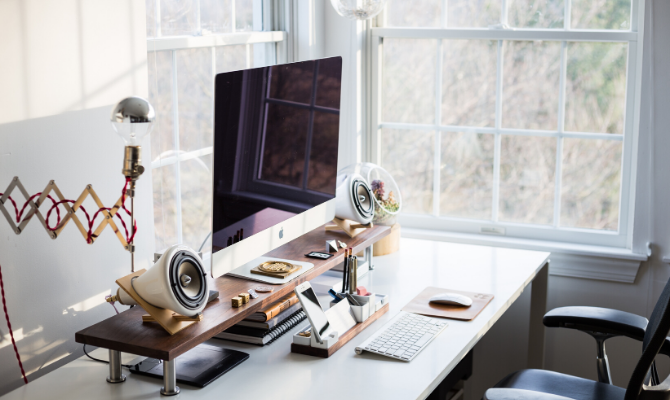With the corona virus outbreak threatening to overwhelm our health system, many of us are choosing to self isolate.
For others, it’s only a matter of time before we’re told to stay home.
This will mean an enforced layoff for some workers, such as those in hospitality. For those of us who can work remotely, however, there’s no need to down tools.
The problem is, working from home can be tough. Sure, the idea of escaping the horrors of an open plan office for the comfort of home is appealing. But without your boss breathing down your neck, it can be all too easy too allow your productivity to fall off a cliff.
So how do you stay productive when your home is your office?
Start the day like it’s a work day
As tempting as it is to roll out of bed and set up on the couch with your lap top, this is not advisable.
It’s a work day, after all.
Follow your usual weekday routine. Get up, shower, coffee, breakfast. Whatever it is you normally do.
And dress for work. Don’t go overboard. If you’re a white collar type, there’s no need to put on your suit. But look respectable. Imagine you have Skype meeting with your boss at 9am.
Make a schedule and stick to it
This is the key to staying productive while working from home. Without a regular schedule, you’ll find you fritter the day away.
Morning is the best time to get things done. That’s when our minds are fresh and there are less distractions.
Have a specific time that you get up and a time that you sit down to work. The earlier the better. Keep these times consistent from day to day, as far as possible. We all work better with a routine.
Try to plan out your day. A good habit to get into is making a ‘to do’ list at the end of each workday. That way, you’ll hit the ground running the next morning.
Prioritise the tasks on your list. As a rule, always do the hardest tasks first. That is, the things requiring the deepest level of thought. Leave the more administrative stuff for later. This can feel counter intuitive. You might think, “I’ll get the bits and pieces out of the way before moving onto some real work”. Take this approach and too often you’ll get to the end of the day, only to find you haven’t done the most important things on your list.
Finally, it can be a good idea to share your schedule with your nearest and dearest. One of the biggest productivity killers when working from home is being interrupted by friends and family. You might think people will understand that although you’re at home, you’re still busy. They won’t. Let them in on your work schedule and you’ll help them understand.
Schedule time for breaks and exercise
There are limits to how long you can concentrate on a single task. Some say you should take a short break every 45 minutes. Others suggest breaking up the day into 90 to 120 minute chunks.
Personally, I find that I can work for longer stints in the morning, but need to break it up a little more in the afternoon.
Whatever works for you, it’s important to include regular breaks in your schedule. You’ll find this helps you to be more productive and less prone to distraction when you are working.
The benefits of daily exercise are well known. Whether it’s a walk around the block, some YouTube yoga or backyard cricket with kids, make sure you schedule time to get your body moving.
Limit distractions – devices are not your friend
If you want to work effectively from home, you need to limit distractions as much as possible.
Once you’ve trained your family to respect your schedule, the biggest distraction will be your devices. Put them on silent and turn off notifications and you’ll get more done.
For those who struggle to ignore their phones, there are apps that will take you offline for a set period of time. Two good ones are Forrest and Freedom. Use these during that morning time when you’re attacking your most challenging tasks for the day.


